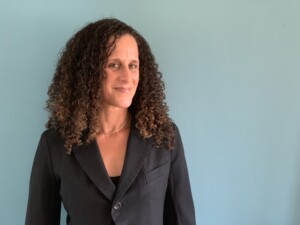Powell-Heller Conference for Holocaust Education
“Africa and the Holocaust”
Keynote Speakers
Free and Open to the Public - Registration Required
“Sub-Saharan Africans and the Holocaust”
Keynote Speaker: Dr. Edward Kissi
Wednesday. October 25th
7:00 p.m. – Keynote (Regency Room, AUC)
Education
B.A. (History, Classics) University of Ghana, 1987; M.A. (History) Wilfrid Laurier University, CANADA, 1991; Ph.D. (History) Concordia University, Montreal, CANADA, 1997.
Biography
Edward Kissi is Associate Professor in the Department of Africana Studies at the University of South Florida (USF). He completed his undergraduate studies in the Departments of Classics and History at the University of Ghana, in 1987. He earned an MA in History from Wilfrid Laurier University, in Canada, in 1991, and a Ph.D. in History from Concordia University, in Montreal, Canada, in 1997. Kissi was an Andrew W. Mellon post-doctoral fellow in the Genocide Studies Program at Yale University from 1998 to 1999 and served as Visiting Assistant Professor at the Center for Holocaust and Genocide Studies at Clark University, from 2000 to 2003. Since 2004, Kissi has been teaching and conducting research at USF. His research focuses on 20th Century economic and diplomatic history of Ethiopia and the Horn of Africa; history of US foreign relations (with Africa) since the 20th Century, and the comparative history of genocide and human rights. He is the author of Revolution and Genocide in Ethiopia and Cambodia (2006), and has published a number of articles and book chapters on genocide, famine, international relief aid and US foreign policy towards Africa in the Cold War period in notable books and peer-reviewed journals. His most recent article appears in the May 2012 issue of Past and Present (http://past.oxfordjournals.org/cgi/reprint/gtr047ijkey=LPjzqfvx2z7Fnzl&keytype=ref
In 2009, Kissi wrote “The Holocaust as a Guidepost for Genocide Detection and Prevention in Africa” for the landmark United Nations’ Discussion Papers Journal (http://www.unorg/holocaustremembrance/docs/paper5.shtml). He has since been involved in major international activities on Holocaust and Genocide Education, including UNESCO’s on-going initiatives on Holocaust and Genocide Education in Africa.
Biography
Sarah Abrevaya Stein is author or editor of ten books. In The New York Times, Matti Friedman has written that “Stein, a UCLA historian, has ferocious research talents […] and a writing voice that is admirably light and human.”
Stein’s most recent book, Wartime North Africa, A Documentary History 1934-1950 (Stanford University Press, with the cooperation of the USHMM, 2022), the first-ever collection of primary documents on North African history and the Holocaust, gives voice to the diversity of those involved—Muslims, Christians, and Jews; women, men, and children; black, brown, and white; the unknown and the notable; locals, refugees, the displaced, and the interned; soldiers, officers, bureaucrats, volunteer fighters, and the forcibly recruited. At times their calls are lofty, full of spiritual lamentation and political outrage. At others, they are humble, yearning for medicine, a cigarette, or a pair of shoes.
Translated from French, Arabic, North African Judeo-Arabic, Spanish, Hebrew, Moroccan Darija, Tamazight (Berber), Italian, and Yiddish, or transcribed from their original English, these writings shed light on how war, occupation, race laws, internment, and Vichy French, Italian fascist, and German Nazi rule were experienced day by day across North Africa. Though some selections are drawn from published books, including memoirs, diaries, and collections of poetry, most have never been published before, nor previously translated into English. These human experiences, combined, make up the history of wartime North Africa.
Stein’s previous book, Family Papers: A Sephardic Journey Through the Twentieth Century (Farrar, Straus, & Giroux: Macmillman, 2019), explores the intertwined histories of a single family, Sephardic Jewry, and the dramatic ruptures that transformed southeastern Europe and the Judeo-Spanish diaspora. This book also traces the history of a collection, reflecting on how one family archive came to be built and preserved, and how it knit together a family even as the historic Sephardi heartland of southeastern Europe was unraveling. The Economist named Family Papers a Best Book of 2019, while the New York Times Book Review selected it as an Editors’ Choice Book. Family Papers was also named a National Jewish Book Prize Finalist (2019).
Stein’s books, articles, and pedagogy have won numerous prizes, including two National Jewish Book Awards, the Sami Rohr Prize for Jewish Literature, a Guggenheim Fellowship, and the UCLA Distinguished Teaching Award.
Stein is also co-editor (with David Biale of UCD) of Stanford University Press Series in Jewish History and Culture.




